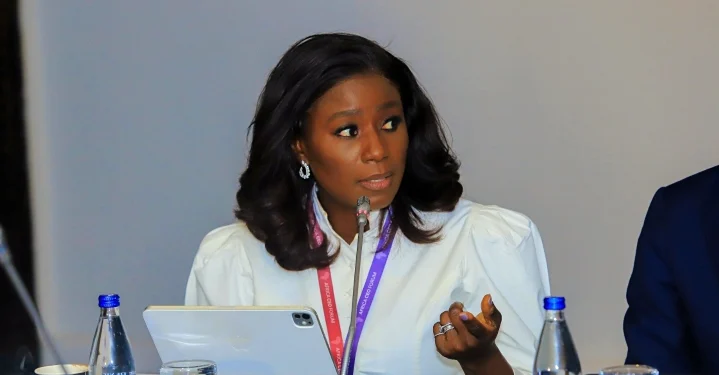In a major boost to Nigeria’s energy sector, the Federal Government has announced that the country secured over $8 billion in deepwater and gas investments within a year. This marks a significant jump from the previously declared $6.7 billion in energy sector investments recorded in 2024.
The revelation came from Olu Verheijen, Special Adviser to the President on Energy, during her address at the 2025 Africa CEO Forum held in Abidjan, Côte d’Ivoire.
According to Verheijen, the surge in investment is a direct result of recent policy reforms, including improved fiscal conditions, streamlined project approvals, and clearer local content rules. Reforms in the power sector have also made gas-to-power projects more commercially viable, she said.
“In under a year, Nigeria unlocked over $8bn in deepwater and gas Final Investment Decisions through decisive presidential action,” Verheijen stated. “We moved from gridlock to greenlight, and investors responded.”
Projects such as the Bonga North Deepwater Project and the Ubeta Gas Field have received Final Investment Decisions (FIDs), reflecting renewed investor confidence.
However, despite the influx of capital, Verheijen stressed the need for sustained financial discipline across Africa. She challenged African leaders to focus less on emotional appeals to “African capital” and more on commercial logic and competitiveness.
“Capital has no passport,” she warned. “It flows where risk-adjusted returns are competitive.”
Citing a drop in Africa’s share of global upstream investments—from $340bn (2011–2015) to a projected $130bn (2026–2030)—Verheijen described the trend as a “structural decimation,” not a temporary dip.
She urged African nations to become investment-ready by design, aligning with global trends favoring low-cost, low-carbon, de-risked projects. She also called on domestic financiers—banks, pension funds, and sovereign wealth funds—to take a leading role, especially in onshore and gas infrastructure.
Verheijen praised notable indigenous achievements, such as the Renaissance Africa Energy Consortium’s acquisition of Shell’s onshore JV and the operational scale of the Dangote Refinery. She also noted an increase in indigenous equity in Nigeria’s gas sector from 69% to 83%.
Despite this progress, she cautioned that international capital remains vital, with IOCs still funding over half of production and capital expenditure in sub-Saharan Africa.
“Africa must align with evolving investment criteria. Let’s be realistic—investment must come first; returns and benefits will follow.”
In her closing remarks, Verheijen issued a call to action:
“Africa must become an investment destination by design—anchored in policy clarity, commercial logic, and strategic intent.”















